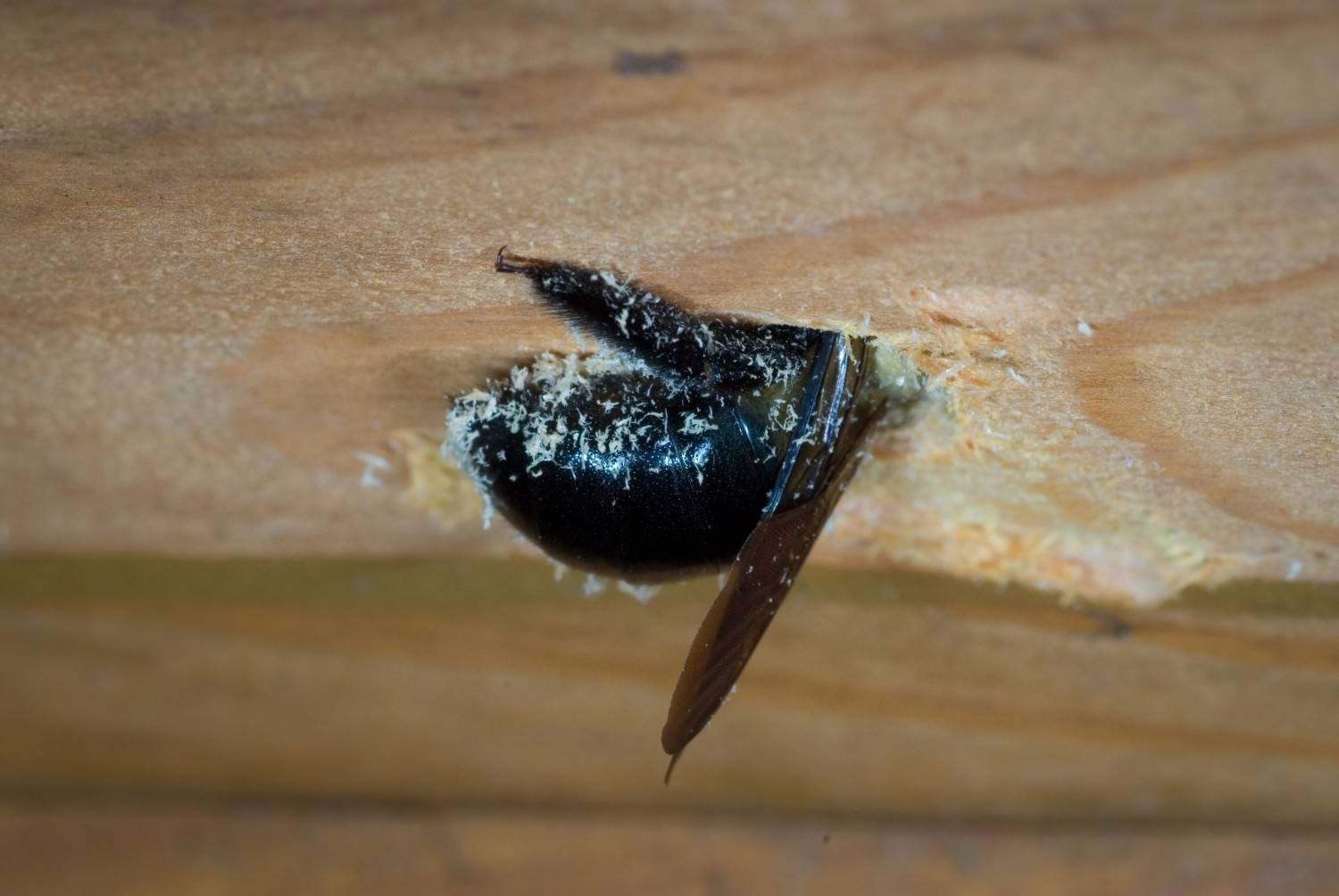Just by chance, you've spotted a carpenter bee near your wooden deck and it's got you thinking, do these insects eat wood? It's a reasonable concern, as these bees are often seen burrowing into timber structures.
You might worry about the potential destruction they could cause to your home in Reston. Well, hold onto that thought, because we're about to unravel the truth about carpenter bees, their diet, and what exactly draws them to your wooden structures.
This knowledge might just shift your perspective on these misunderstood creatures.
Physical Characteristics Of Carpenter Bees
Let's take a closer look at the distinct physical characteristics of carpenter bees, which, contrary to popular belief, don't eat wood but instead use their strong jaws to excavate tunnels in wood for nesting. You'll often find these bees using their impressive strength to create small openings in wood, leading to intricate networks of tunnels inside. This is where carpenter bees create their nests.
It's often the female carpenter bees that are the architects behind these structures. They're the ones that burrow into the wood, creating galleries where they lay their eggs. But don't be fooled, they aren't consuming the wood. Their diet consists mainly of nectar and pollen from flowers.
You might be wondering about the wood damage. Here's the thing: the damage caused by these bees isn't a result of them feeding on the wood. It's actually due to their nesting behavior. They excavate tunnels and nests for their offspring, which can cause significant damage over time. So, while these bees don't actually eat wood, their nesting habits can indeed make them a nuisance. Keep that in mind the next time you see a carpenter bee buzzing around your timber structures.
Why Do Carpenter Bees Attack Me?
Carpenter bees can become quite defensive near their nests, with only the females capable of stinging. Their tunneling behavior can cause structural damage to wooden structures, a downside that sets them apart from the more environmentally friendly bumble bees. However, it's important to note that carpenter bees are solitary creatures, unlike the sociable bumble bees who live in hives with a queen and workers.
Habitat and Nesting Preferences
Moving on from their behavioral tendencies, it's also crucial to understand the carpenter bees' unique habitat and nesting preferences. Unlike their bumblebee relatives, carpenter bees don't live in hives but prefer to nest individually in wood. They've a particular liking for soft, unpainted, and weathered wood, which they use to create their nesting sites.
You'll often find these bees making homes in places like your deck, eaves, or fences. They don't eat the wood but use their strong mandibles to excavate wood tunnels. It's quite a sight to see a female carpenter bee busily chewing through wood to create a cozy nest.
Sometimes, carpenter bees might even take over abandoned wood holes created by other insects or rodents. However, this unique nesting habit can cause structural damage over time if left untreated. The holes they bore into wood aren't just cosmetic issues; they can weaken the structure of your home.
Impact on the Ecosystem and Humans
Despite not eating wood, carpenter bees can still have a significant impact on both our ecosystems and human structures. They tunnel into wood to create nests, causing wood damage over time. This behavior compromises the structural integrity of your wooden structures. So, you're not just dealing with a simple bee infestation, but a potential safety hazard.
Now, imagine a woodpecker being attracted to the sound of these tunnelling carpenter bees. They'll peck into the wood, leading to further damage. This is a double whammy for your wooden structures, making them more susceptible to collapse and increasing the risk for human safety.
Understanding this impact is crucial for effective pest management. You need to be proactive in protecting your property, not only to preserve its value but also to ensure your safety. Regular inspections can help identify early signs of carpenter bee infestation. And if you spot any, it's best to consult with a pest management professional. They're trained to handle these situations, ensuring that carpenter bees and other pests don't pose a threat to your property or the ecosystem.
Professional Carpenter Bee Control
My Pest Pros can help protect your home with pest control in Reston. We provide treatments for carpenter bees, termites, and all wood-destroying insects. Call us today at 703-665-4455 or schedule online if you need professional pest control help.
